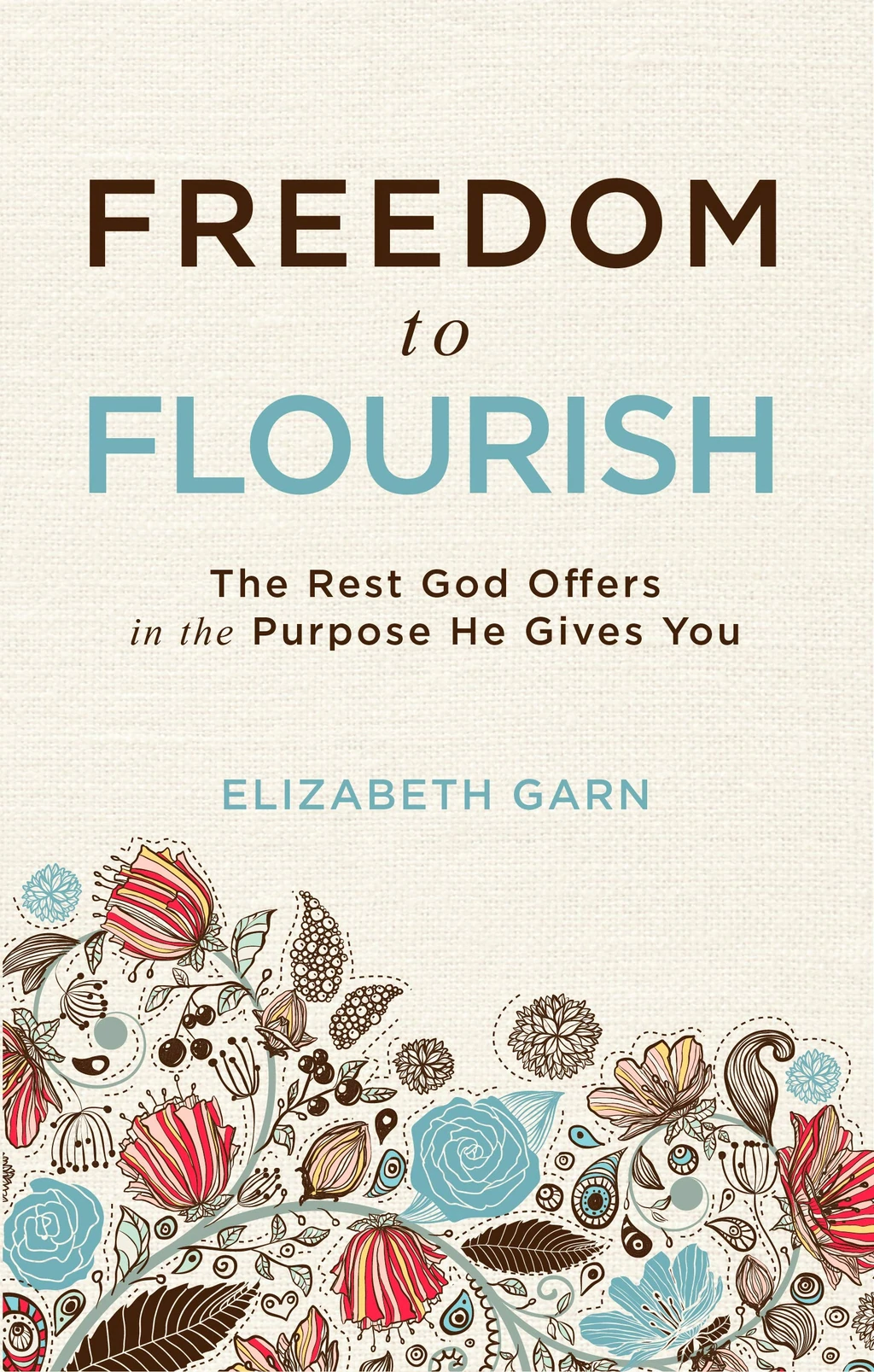
Elizabeth Garn
Reviewed by: Linda Jones
Freedom to Flourish: The Rest God Offers in the Purpose He Gives You, by Elizabeth Garn. P&R, 2021. Paperback, 200 pages, $5.00. Reviewed by OP member Linda Jones.
Freedom to Flourish by Elizabeth Garn is a substantive study from Scripture about what it means to be made in the image and likeness of God and to flourish in his universe. The book, directed toward Christian women, has short chapters followed by discussion questions, making the book suitable for group study.
In the introduction to each chapter, Garn describes a life experience that left her frustrated, defeated, and feeling like a failure as a woman of God, and then follows each narrative with a corrective principle from Scripture. The personal stories she recounts all serve to make an important point, that functionally even we Five Solas Christians, who should know better, are tempted to believe we must work hard to be good enough to earn God’s love.
Part 1, Created, provides an overview of Genesis 1–3 and shows that we flourish by understanding that our purpose is not defined by what we do, but by who we already are as image-bearers. Through a detailed explication of the text, Garn unknots the thread of a common misunderstanding, that God’s mission was entrusted to Adam as a man, and to woman secondarily, as a sort of afterthought. She walks the reader carefully through the Genesis account to make the orthodox argument that creation in the image of God is above the distinction between men and women, and it belongs to humankind. Before marriage or childbearing was in view, man and woman, together, were charged with leading industrious lives, and were given instruction in God’s Word that they were to know, obey, and pass on to their progeny.
Part 2, Restored, recounts the disastrous choice mankind made to reject God’s Word, breaking our relationship with God and his people. These final chapters look at shame and the unholy comparison of ourselves to others, using the account of Adam and Eve lying and hiding from God in the garden after they sinned. I think this is a very strong section of the book, and Garn showcases her insight and storytelling as she describes God’s love and grace as he clothed our first parents with garments he fashioned himself:
As a dramatic demonstration of his restoration-bringing promise, he clothes his children in beautiful garments that represent their status as both his children and his chosen representatives. (138–139)
Her conclusion is that, renewed in Christ, Christian women are freed from sin to flourish and fulfill the cultural mandate, by using our unique gifts and talents at home, work, and in the church to bring the fullness of God to the world by living as his image-bearers (159). Instead of exhausting ourselves to be good enough or do enough, we are freed from sin and shame to live in the image of God, “created in love, called with a purpose, and have been freed to live as images of God” (166).
Key to Garn’s thesis is that women must know the triune God well by reading, studying, and meditating on God’s Word, which she models by her own study on this topic, drawing on G. K. Beale’s larger works of biblical theology, as well as Currid, Kidner, and several others on Genesis, and Abraham Kuyper on common grace.
I wish that in addition to focusing on the provisional aspect of our work on earth, she had worked out eschatological glory and communion with God for eternity, via the work of Christ, as God’s eternal purpose for his people. It’s there, but you have to look closely through the tinge of transformationalism. I hope someday to read a book addressed to women drawing from Vos, Bavinck, and others to develop more fully the life oriented to the paradise of God and the lives of worship we live out as image-bearers because Christ himself fulfilled the cultural mandate for us. Perhaps even such a book by Elizabeth Garn!
March 30, 2025
On the Trail with a Missionary
March 23, 2025
Midnight Mercies: Walking with God Through Depression in Motherhood
March 16, 2025
March 09, 2025
Zwingli the Pastor: A Life in Conflict
March 02, 2025
February 23, 2025
African Heroes: Discovering Our Christian Heritage
February 16, 2025
© 2025 The Orthodox Presbyterian Church